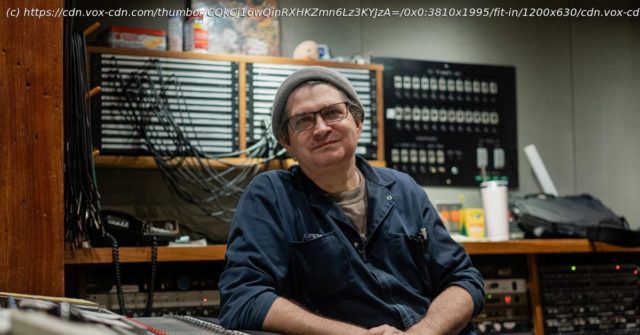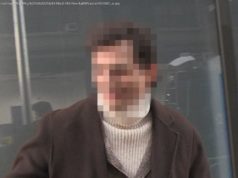Steve Albini shows off his Electrical Audio studio in Chicago’s Avondale neighborhood
Veteran sound engineer Steve Albini shows off his studio and explains why analog tops digital. Monday is Labor Day, an apt moment to consider a profession rarely featured in a daily newspaper. “Let me show you the rest of the studio,” said Steve Albini, moving through a musician’s paradise of musical instruments — fine guitars, timpani, two grand pianos — plus an audiophile’s dream of equipment: Marshall amplifiers, reel-to-reel Ampex tape machines, high-end speakers, coiled cords, headphones, mixing boards, rows of phase shifters and fuzzboxes and other effect pedals. The walls are enormous bricks, each weighing 13 pounds. “These are adobe bricks we had brought up from New Mexico,” he explains. “They have some interesting acoustic properties. The walls are self-isolating… massive, enormously heavy and that stops the transmission of sound from room to room. We built this whole place. Everything you see is a new construction.” Since 1997, here on Belmont Avenue, Albini has recorded music by thousands of musicians, from the world famous to the deeply obscure. Commercial clients, too. A few cases of Mambo fruity candy are scattered around the foyer — the manufacturer needed a recording studio to shoot a commercial, and hired the space, which has a feel that is somehow both cutting edge and classic. “Everything that we’ve seen so far is Studio A — the bigger, fancier studio,” Albini said. “Each of the rooms has a different sound footprint, and that is intentional, so you can make an active choice about what you’re recording. That room over there is Alcatraz — super dead, super dry sound. This room is called the Kentucky room, much brighter and more lively recording environment. It has a quick slap of reverb and not a long-sustaining decay. Very good for drums. Any acoustic instruments, acoustic guitar, banjo violin, mandolin. Any percussion instruments, vibes and marimbas and all that kind of thing — all that sounds great in there because you get this quick, bright, reverberant sound from the room.” If you’re wondering why we’re here, it’s complicated. Among the many bad things that COVID-19 has done is isolate people. Casual relationships vanish. It gets lonely. A few weeks back, I read a Tribune story about speed cameras that quoted Albini saying the typically challenging, contrarian things I remember him saying when we were in college together. Unlike drivers such as myself, merely irked to get speeding tickets, Albini finds the automatic speed cameras “a nicely implemented, mild reminder to keep speed under control in those areas.






